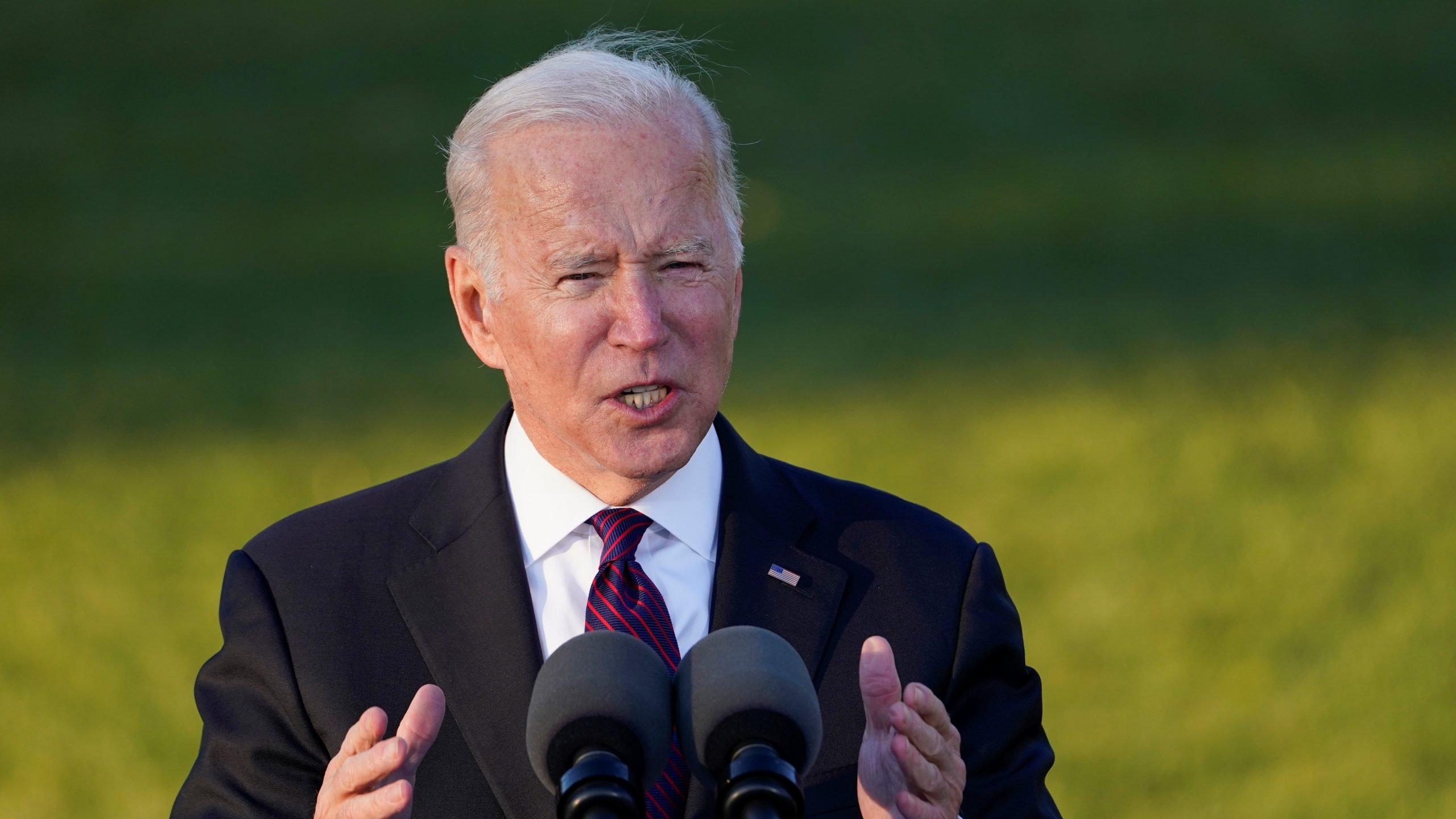

EXCLUSIVE: President Biden is expected to sign three pieces of bipartisan legislation into law on Thursday in support of police officers, the law enforcement community, and federal officials, Fox News has learned.
The president, on Thursday morning, will sign into law S. 1511, the “Protecting America’s First Responders Act of 2021,” S. 1502, the “Confidentiality Opportunities for Peer Support Counseling Act or the COPS Counseling Act,” and S. 921, the “Jaime Zapata and Victor Avila Federal Officers and Employees Protection Act.”
BIDEN CALLS FOR HIRING MORE POLICE, CRACKING DOWN ON ILLEGAL GUNS TO COMBAT CRIME
The president will sign the bills, which all passed with almost unanimous, bipartisan support, at a White House ceremony in the State Dining Room, a White House official told Fox News.
The “Protecting America’s First Responders Act of 2021,” authored by Republican Sen. Chuck Grassley of Iowa and co-sponsored by Democratic Sen. Kirsten Gillibrand of New York, would better ensure that law enforcement and first responders who are disabled in the line of duty have prompt access to benefits.
Under the current federal program, disability or death benefits are provided in the form of a one-time lump sum payment, which is adjusted yearly based on the consumer price index. Those benefits may also be issued to a surviving spouse or children in the form of monthly education assistance.
But the Grassley-Gillibrand bill requires the benefit award amount to be based on the date of the adjudication, rather than the date of the injury, to account for increases in the cost of living that may occur during lengthy adjudication periods.
That bill was cosponsored by more than a dozen Republican and Democratic senators.
The president is also set to sign the “Confidentiality Opportunities for Peer Support Counseling Act” or the “COPS Counseling Act,” which sets requirements for peer support counseling programs to be provided by a law enforcement agency.
That bill, authored by Grassley, and Sen. Catherine Cortez Masto, D-Nev., would provide confidentiality to federal law enforcement officers who use peer counseling services, while excepting admissions of criminal conduct or threats of serious physical harm. The bill would also encourage first responder agencies to adopt peer counseling programs by requiring the DOJ to make best practices publicly available on its website and to provide a list of training programs for individuals to become peer support mentors.
The COPS Act passed the House last month on a 424-3 vote. The three lawmakers that voted against the legislation were Democratic Reps. Alexandria Ocasio-Cortez of New York, Rashida Tlaib of Michigan and Cori Bush of Missouri.
Meanwhile, Biden will also sign the “Jaime Zapata and Victor Avila Federal Officers and Employees Protection Act,” which was led by Republican Sen. John Cornyn of Texas, and Democratic Sen. Chris Coons of Delaware. The bill was cosponsored by Sens. Patrick Leahy, D-Vt., Tom Cotton, R-Ark., Sheldon Whitehouse, D-R.I., and Josh Hawley, R-Mo. Grassley joined his Senate colleagues in supporting the legislation.
The bill ensures that individuals who have killed or attempted to kill U.S. federal officers and employees serving abroad can be brought to justice and prosecuted in the United States.
The bill is named for U.S. Immigrations and Customs Enforcement (ICE) Special Agents Jaime Zapata and Victor Avila, who were attacked by Mexican drug cartels in San Luis Potosi, Mexico on February 15, 2011. Special Agent Zapata died from his injuries, and although his murderers were apprehended, Grassley’s office said that, last year, a federal appeals court dismissed the murder convictions on the basis that the district court did not have jurisdiction over the crimes committed against law enforcement stationed overseas.
The legislation would also clarify that federal officers and employees serving overseas are protected, and that U.S. courts may try their attackers in a U.S. court of law.
[“source=foxnews”]


